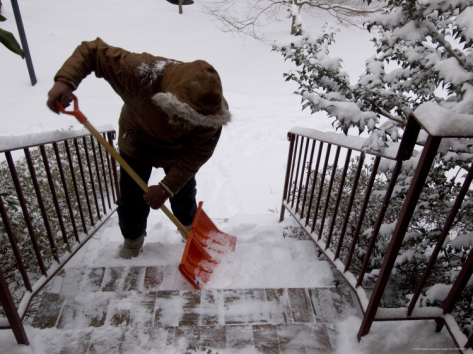As winter creeps up on Greater Boston Area homes, the lay of the landscape comes into play. Have you assessed the safety and manoeuvrability of your front entrance or side door? Can you easily clear snow from the walkway or spread ice melt to help improve traction? Stable walkways and stone steps help your home look inviting in the warm months, but they can also enhance safety over the winter.

Benefits of Stone on Paths and Stairs
Homeowners have several options when landscaping a pathway or creating steps. Gravel and mulch often work for casual, economical walkways, but can leave your landscape a mess when the snow falls. Shoveling even a light snow off of loose stones is a hassle and often destroys pathways over the season. Investing in a more permanent solution makes sense, considering the years of dependable service this material offers.
Stone also works best for low rise stairs, such as to your front porch or entrance door. Wide and firm, stone or concrete steps provide a stable walking surface. Spread salt or ice melting solutions onto the step surface without worrying about corrosion or decay. And scraping the snow and ice from a set of stone steps may be hard work, but the material can take the wear and tear without a problem.
When To Install Stone
It's generally a good idea to install mortared stone in warmer weather, allowing the mortar to set well. But dry stone applications, such as interlocking pavers, can be installed at almost any time of the year, as long as your landscaper excavates properly and lays a decent base.
Consider whether a stone pathway or stair will help your family and visitors get safely in and out of the house over the winter months. If this type of home improvement project enhances your property and lifestyle, the investment is well worth it.

 781-646-5555
781-646-5555